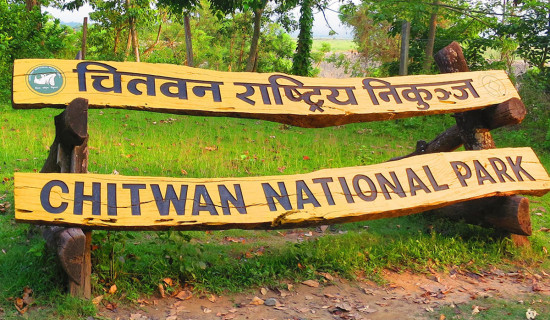- Sunday, 19 May 2024
By-election Results
An Eye Opener For New Parties
The recent by-election results in Ilam and Bajhang provided excellent insights into Nepal's current political dynamics. While they demonstrated that traditional parties in Nepal have significant influence over voters, they also indicated that newly emerging parties, such as the Rastriya Swatantra Party (RSP) and identity-based parties, will have to work hard in the coming days if they want to win people's support.
The first-past-the-post voting in Ilam-2 and Bajhang-A showed that two parties, the CPN-UML and the Nepali Congress, had a wider voter base in the nation. In both elections, UML candidates beat Nepali Congress officials, indicating the party's strong presence in the hills despite its division and other issues. While UML's Suhang Nembang easily defeated the Nepali Congress' Dambar Khadka in Ilam-2, RSP's Milan Limbu finished fourth, losing his electoral deposit. Dakendra Singh Thegim, who campaigned on identity-related themes, stood third behind Nembang and Khadka. The third-place finish was taken positively by the groups backing his candidature on the identity line.
Moderate stances
Despite their ardent and catchy slogans, the newcomers have failed to challenge the two major parties, as Nepali voters favour either the UML or the Congress because of their moderate stances. Other parties may win a few seats because a small percentage of voters are disillusioned with the two parties. Any new parties, such as the RSP and the Janamat Party, that lack clear favorable principles will fail to attract a large number of people and may struggle to compete with the two major parties. Without a doubt, the ideological vacuum and organisational problems that plague newer parties pose threats to their long-term existence in Nepali politics.
Even the Maoist Centre, with its strict hardline dogma, failed to outperform the other two parties in the highlands, hills, and Terai. According to observers, if Maoist leaders ran in the elections alone without forging poll alliances with the Congress or the UML, many of them would lose, since many left-leaning or communist votes go to the UML, which has a strong presence among hill voters and elsewhere.
Prior to voting, the whole country waited with bated breath for the Ilam-2 election results. Many observers anticipated the RSP's remarkable rise in the 2022 general elections to benefit Ilam-2 since the party opted to nominate a local journalist, Milan Limbu, who is well-liked in the seat dominated by Limbu ethnic voters. The pathetic performance of Milan, who lost his electoral deposit, proved that the RSP's message of change has yet to reach a large audience. Furthermore, the RSP's leader, Rabi Lamichhane, has lately been under fire for alleged scandals and complicity in cooperative money misappropriation. Furthermore, his aggressive determination to remain in power at all cost has not gone down well with voters. This frustrated voters in Ilam-2, leading to his party's defeat.
Meanwhile, RSP continues to face organisational challenges because it has yet to set up its bases in various parts of the country, whereas the two traditional parties have strong organisations in every part of the country — from local to central — that are deeply connected to society and voters. The stable left-leaning voter base has historically aided parties like the UML in maintaining their electoral dominance. Suhang, who stood in the election after his father, Subas Chandra Nembang, a well-known UML leader, died last year, emerged triumphant and received sympathy votes, proving how traditional parties may perform in Nepali politics. As new parties fail to demonstrate a clear vision and path to winning over voters, the NC-UML duopoly will continue to dominate Nepal's political system for the foreseeable future.
Any new forces seeking to compete with these two parties must strike a difficult balance between disturbing the existing political climate and avoiding radical ideas. Because Nepalis have shown a preference for moderate forces over radical ones, new parties must be adept at addressing ideological problems. The RSP and Thegim's party must learn from the deteriorating situation in the Maoist Centre, which continues to promote extremist beliefs under one-party control due to the party's centrality policy. The Nepali people have rejected this political concept, as evidenced by the Maoist Centre's drop to third position in national politics despite being led by a revolutionary leader, Pushpa Kamal Dahal Prachanda.
Frustration
Meanwhile, identity politics has yet to develop into a serious force capable of competing with conventional parties, who are often accused of doing little or nothing to combat casteism and marginalisation in the country. Though the promises of inclusion and empowerment for disadvantaged people were important to our constitutional structure, their execution has fallen short, causing frustration among marginalised populations. In certain areas, this has given rise to identity politics. However, the incapability of identity-based organisations to maintain pressure on political elites highlights the dominance of two established political parties. Observers believe that two moderate parties, the UML and Congress, have included a variety of groups within them to address identity and marginalisation concerns. As a result, they do not see great competence from such pro-identity parties or groups.
Finally, the recent by-elections have once again highlighted the complexities of Nepal's politics. While established parties like the NC and CPN-UML continue to dominate, the success of new emerging parties such as the RSP largely depends on their ability to overcome a range of challenges. These include strong, time-tested and appealing ideologies, consolidation of organisation, and honest approach to resolve issues with governance. It is important for them to reach out to people, establish strong bases across the country, and implement their ideas with integrity so that the established parties can feel heat.
(Upadhyay is former managing editor of this daily.)















